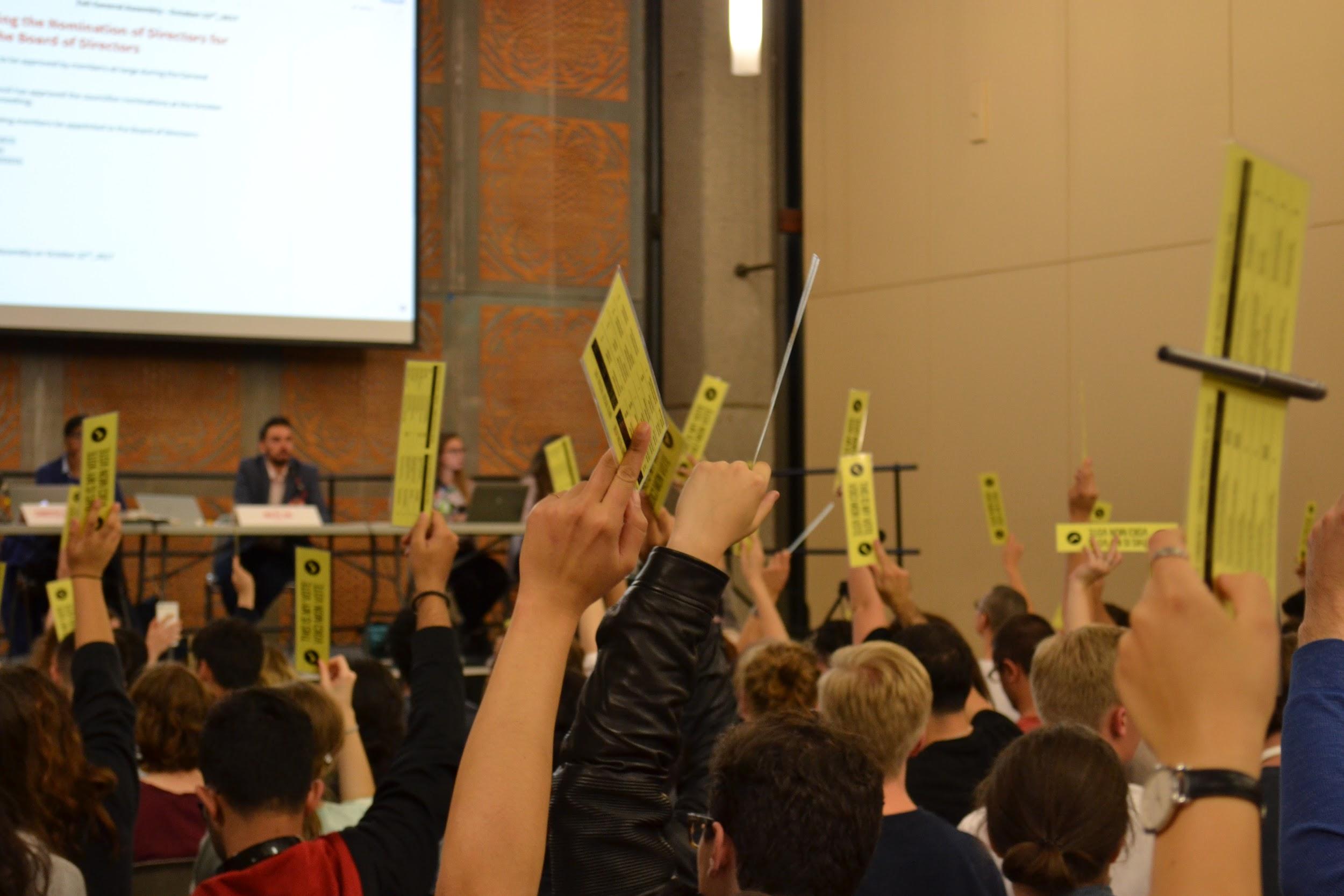At a hearing held on Nov. 30, the Students’ Society of McGill University (SSMU) Judicial Board (J-Board) committed to delivering a verdict in the case of Glustein v. Koparkar by Dec. 31. The hearing concerned a dispute over the constitutionality of a motion passed at the at the Oct. 23 Fall 2017 General Assembly (GA) that divided the ratification of appointments to the Students' Society of McGill University (SSMU) Board of Directors (BoD) into a separate vote for each appointee. BoD appointments are typically ratified by GAs as a single ticket, with members-at-large voting either yes or no to the collective ratification of all appointees. However, because of the motion to divide the question, only seven of the 10 BoD appointments voted on by the GA were ratified, with the remaining three rejected. While the seven Directors whose appointments were ratified at the GA were supposed to begin their terms on Nov. 15, a J-Board interim decision to extend the terms of the previous 12 Directors indefinitely remains in effect.
The Dec. 31 deadline for the J-Board’s verdict means that deliberations will last more than double the 14-day timeline that the J-Board typically allots for cases. At the hearing, Justice Samuil Stoychev explained that the complex nature of the case has delayed their verdict. All decisions made by the J-Board must be ratified by the BoD—who have already had their last meeting of the semester—a conflict which Stoychev acknowledged at the close of the trial.
“We’re worried the decision will be overturned by the BoD either way if it is rushed,” Stoychev said. “It’s very likely the decision won’t be actionable until next semester anyway.”
After protesting the motion to divide the BoD appointments at the GA, BoD member-at-large Jonathan Glustein submitted a petition to the J-Board which listed SSMU Vice-President (VP) Internal Maya Koparkar—who originally moved the motion—and former SSMU Legislative Council speaker Jad El-Tal—who, as speaker, allowed the motion to be moved and voted on—as respondents. In his petition, Glustein alleged that the division of the ratification votes was unconstitutional, and requested the J-Board nullify their results.
At the hearing, Koparkar, who also sits on the BoD, explained that her motion was an attempt to increase the legitimacy of BoD appointments and alleviate SSMU members’ concerns about their undemocratic nature. Koparkar noted that, in response to these concerns, the SSMU Legislative Council also chose to vote on the Directors’ appointments individually.
“The motion was not targeted to remove specific Board members, and I didn’t think it would cease being more than a procedural matter, like the bloc vote,” Koparkar said. “I didn’t expect three Directors to be rejected. I had no way of knowing. My own spot was in jeopardy too.”
Noah Lew, a current member-at-large on the BoD and one of the appointees rejected by the GA, made a viral Facebook post claiming that the failure of his ratification was the result of anti-semitic sentiment at McGill.
“I was blocked from being able to participate in my student government because I am Jewish, because I have been affiliated with Jewish organizations, and because I believe in the right to Jewish self-determination,” Lew wrote.
Glustein and his counsel Nikolas De Stefano, a McGill Law student from the Legal Information Clinic, argued that section 6.5 of the SSMU Constitution requires appointments to the BoD to be ratified as a bloc. They also argued that sections 6.9 and 6.10, which list the conditions under which a Director can be removed and replaced, do not include their appointment failing to be ratified at a GA. Additionally, De Stefano argued the Constitution does not require the BoD to be an elected body, and that splitting the ratification violated the Constitution.
"By splitting the vote, you mutilate the entire constitutional structure,” De Stefano said. “You turn an appointed body that is supposed to be ratified by bloc into an elected one [….] The people who voted at the GA knew next to nothing, saw no nominating papers, and were not campaigned to. For better or worse, the Constitution does not designate [the BoD] as an elected position.”








